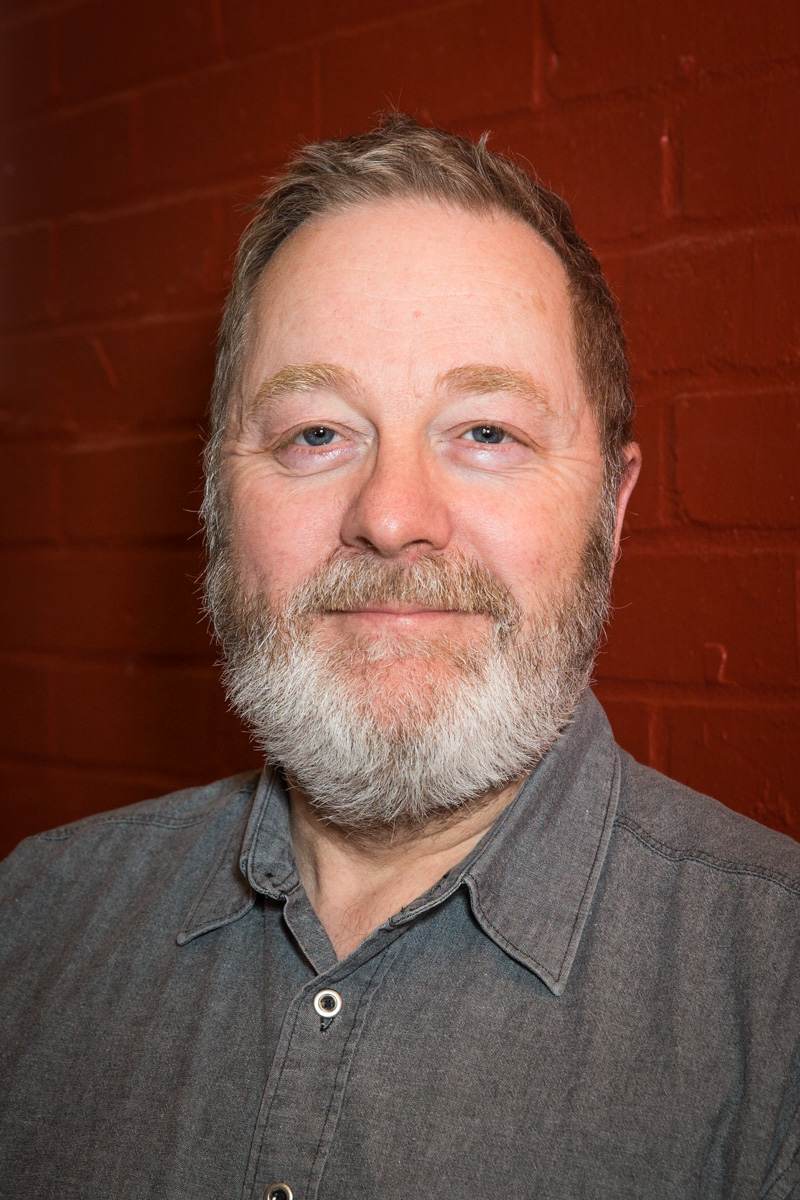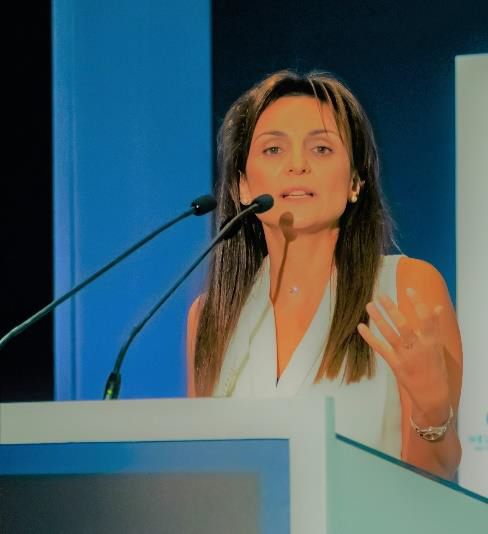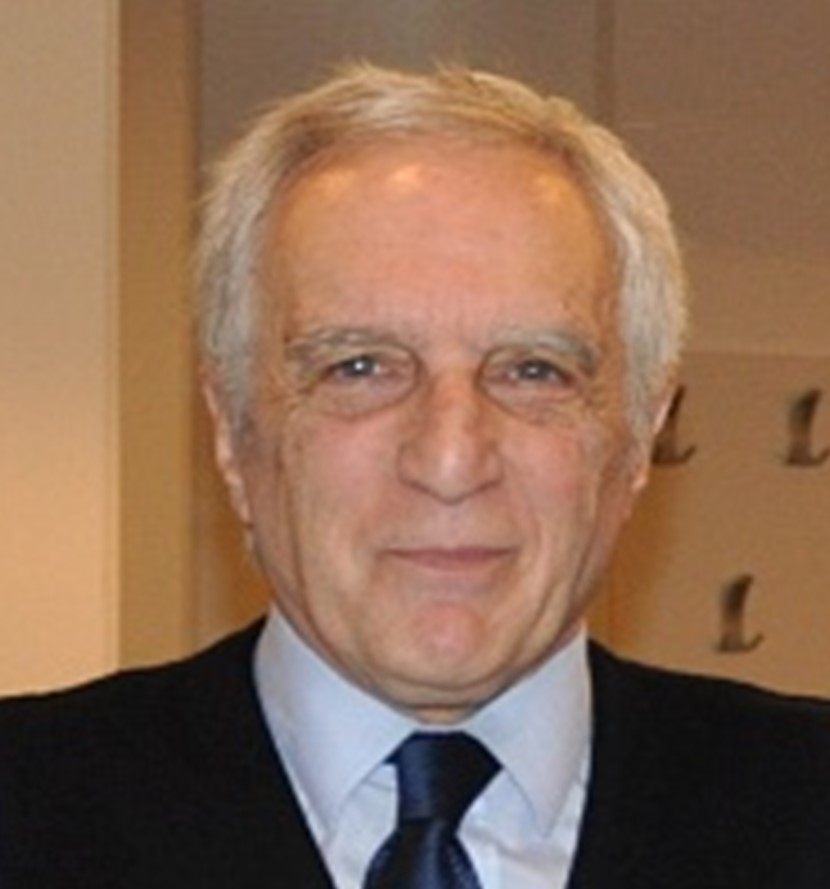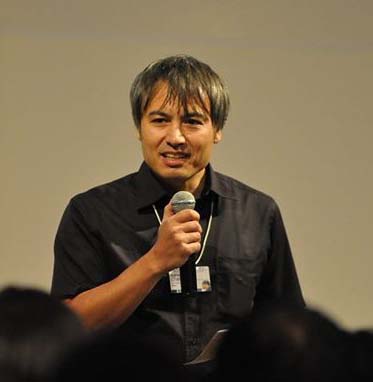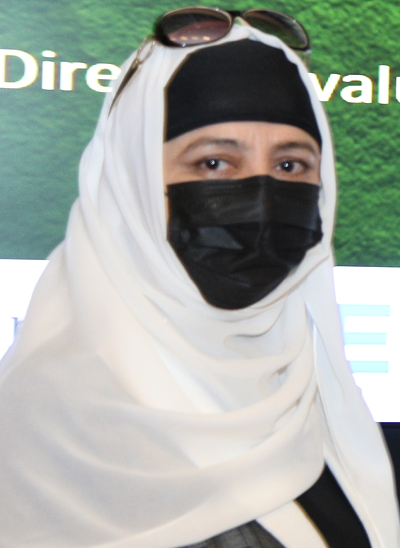Keynote Speakers
Dr. Chris Rowley, Professor
GradCIPD, BA, MA (Warwick), DPhil (Nuffield College, University of Oxford)Visiting Fellow, Kellogg College, University of Oxford, UK
Research Associate, Centre for Mutual & Co-Owned Business, Kellogg College, University of Oxford, UK
Professor Emeritus, Bayes Business School, City, University of London, UK
Speech Title: Big Data & Innovation: The Importance of Culture & Leadership
Abstract: As a keynote address, I thought it would be more useful and better to give some sort of macro, broad, less technical overview of the area. So, there are four main parts to my talk. Following the introduction and some very broad and simple discussion and examples of what big data and innovation are, I will move onto the third and main section about impacts on the area and end with a conclusion.
I will start with four key points. First, individuals and processes do not occur in a ‘black box’. Second, there may be institutional supports in the area, but thirdly, there are also cultural influences, including for example, attitudes to risk-taking, uncertainty and the need for effective leadership. Fourth, it is a fashionable topic. In terms of the impacts on big data and innovation, I will make three points. First, they involve uncertain processes and outcomes. Therefore, second, the area involves risk taking – or ‘uncertainty avoidance’, Yet, people’s comfortableness with this varies hugely. Third, I will explore what might be behind this variability and focus on a pair of interlinked factors: culture and leadership. This requires some discussion of terms and meanings in the area of ‘uncertainty’. I will then outline the second impact, from leadership and why it is important and matters and what ‘makes’ leaders. I will provide some different leadership styles, which in turn requires us to note a framework of variables: followers; leader; situation with leader-member exchange as a dyadic relationship. This can be seen in variations in global leadership in the context of universalism versus particularism and what makes ‘effective’ leaders in terms of the ‘3Cs’ of context, culture, competence and especially the role of types of skills. I will end with some key implications for practice.
Biography: Prof. Chris Rowley worked in a wide range of industries & jobs before returning to education part time & then university, who has 30+ years experience of many university systems in the UK, Europe & Asia:
• Established Centre for Research in Asian Management at City, University of London, UK
• Helped establish think tank & publications series on human capital development in Singapore
• External examiner & advisor for UK & Asian university external courses & programmes
• Examined 50+ PhDs globally
• Won several international grants & evaluated grants internationally
• Experienced speaker for students, executives & practitioners at universities & companies in UK, US & Asia
• Editor of journal + book series
• Published 800+ articles (in about 50 Refereed Academic Journals, such as Human Resource Management, British Journal of Management, Asia Pacific Business Review, Journal of Hospitality & Tourism Management, etc.), books & chapters & practitioner pieces.
• Regularly gives interviews, expert comments & opinion pieces to the international mass media:
o News services: Financial Times, FT Adviser, BBC, CBNC, Bloomberg, Financial News, Guardian, Times, Sunday Times, Independent, Telegraph, Evening Standard, iNewspaper, Corriere della Sera (Italy), Japan Times, China Daily, South China Morning Post, Shanghai Daily, China Business News, Social Sciences in China Today, Svenska Dagbladet (Sweden), La Razon (Spain), La Nacion (Argentina), Global Finance Magazine (US), Sydney Morning Heald (Australia), The Economist
o TV/radio: ITV, Arirang TV, China Radio International, American Public Media Radio, ABC Radio Australia, RNZ New Zealand, Sputnik Radio, Sirius XM, US, Wharton Business Radio, Share Radio, BBC Radio 4, BBC Radio 5 Live
o Practitioner outlets: CIPD People Management, HR Magazine, HR Legal Service, HR Matters, HR Bullets, Workplace Savings & Benefits, Employee Benefits, Changeboard, Recruitment Times, Raconteur, CMI Professional Manager, CFO Magazine, World Financial Review, Financial Management Magazine, Digida
Dr. Phoebe Koundouri, Professor
Department of International & European Economic Studies, Athens University of Economics and Business, GreeceSpeech Title: The role of Big Data in the Transition to Sustainability
Abstract: The European Green Deal (EGD) is the growth strategy for Europe, covering an extensive range of areas, including Climate Action, Energy, Agriculture, Industry and Infrastructure, Environment and Biodiversity, Transportation, Finance and Development, and Research and Innovation. At the same time, the political leadership of Europe has explicitly committed to integrating the United Nations Sustainable Development Goals (SDGs) into the European policy framework and economic agenda. The 17 SDGs derive from the UN Agenda 2030 and serve as the blueprint for developing national/continent/global investment programs for poverty eradication and sustainable development on a global scale by 2030.
In 2020, the United Nations Sustainable Development Solutions Network (UN SDSN), established a Senior Working Group (SWG), consisting of distinguished academics and representatives of international organizations, in an effort to support the European policymakers in the joint implementation of the EGD and the 17 SDGs and help them in the new challenging regulatory framework.
In its 2nd Annual Report, the SWG proposed two text-mining methodologies - A human-based and a (deep) Machine Learning-based- to analyse EGD policy documents and assess their alignment with the Agenda 2030 and the 6 Transformations for operationalizing the SDGs introduced by Sachs et al. 2019. Further, the SWG built the connection between EGD/SDGs implementation and the need to measure, monetize and integrate into investment assessment processes, Natural and Social Capital. Through a meta-regression analysis of values extracted from existing empirical studies, an ecosystem-based benefits-transfer valuation approach was developed using a value transfer function, to assign economic values to Natural Capital across the 14 biogeographical and marine areas of Europe and the importance of bringing them into investment and financial decisions were highlighted.
In this Keynote Speech, Prof. Phoebe Koundouri, the lead author of SDSN SWG’s annual reports, outlines the framework around the transition to Sustainability, explains the massive work being done by the cluster of Institutions she directs (AE4RIA) in this regard, and highlights the crucial role that Information Technology and Big Data technologies have in supporting an effective “Green and Digital” transition. The objectives of the 17 SDGs are complex, interrelated, and very demanding of the scientific foundations on which their implementation relies; and Big Data algorithms are required for their ability to process huge amounts of data in a logical time frame, supporting in this way the extraction of valuable insights from unstructured forms of information and facilitating a reliable process of monitoring the SDGs achievement at global, national and local levels.
Keywords: Sustainable Development Goals, European Green Deal, Big Data algorithms, Machine Learning, Ecosystems Valuation
Biography: Prof. Phoebe Koundouri is a world-renowned environmental economics professor and global leader in sustainable development. She is widely recognized as a pioneer in innovative, human-centric, interdisciplinary systems for the sustainable interaction between nature, society, and the economy. Prof. Koundouri is listed in the most-cited women economists in the world, with 15 published books and more than 300 published peer reviewed scientific papers.
Prof. Koundouri is University Professor (the university’s highest academic rank) at the School of Economics, Athens University of Economics and Business, an elected fellow of the World Academy of Art and Science (World Academy of Art & Science) and the President-elect of the European Association of Environmental and Natural Resource Economists for the period 2019-2025 (EAERE www.eaere.org -with more than 1200 scientific member institutions, from more than 75 different countries).
Prof. Koundouri is the Founder and Scientific Director of the Research Laboratory on Socio-Economic and Environmental Sustainability (ReSEES) (https://www.dept.aueb.gr/en/ReSEES) at Athens University of Economics and Business, focusing on interdisciplinary research on socio-economic and environmental systems. She is also Affiliated Professor at the ATHENA Research and Innovation Center, where she founded and scientifically directs the Sustainable Development Unit and the EIT Climate-KIC Hub Greece (www.athena-innovation.gr/el/eit-climate-kic-hub-greece) of the European Institute of Innovation and Technology (https://eit.europa.eu/), the latter focusing on accelerating technological and social innovations for use in the transition to a climate neutral economy.
Prof. Koundouri is also the co-Chair of United Nations Sustainable Development Network (UN SDSN) -Europe (https://www.unsdsn.org/). The leadership of UN SDSN-Europe is constituted from existing National SDSN European networks and its mission is to serve as a science driven interface with European Commission policymaking. Prof. Koundouri is also the Chair of the Scientific Advisory Board of the International Centre for Research on the Environment and the Economy (ICRE8) (http://icre8.eu/) and Chair of the Scientific Advisory Board of the European Forest Institute (https://efi.int/).
Prof. Koundouri is one of the Commissioners of the prestigious Lancet Commission on COVID-19 (https://covid19commission.org/commissioners) for which she co-chairs the "Jobs-based Green Recovery” Task Force. She leads the UN SDSN Senior Working Group on "Transformation Pathways for the implementation of EGD and the SDGs", co-leads the UN SDSN Sustainable Shipping and Ports and Shipping Initiative, and the UN SDSN 4-seas (Mediterranean, Black, Caspian and Aral Seas) Blue Growth Initiative. She is a member of the CEPR (Center for Economic Policy Research) Network (RPN) on Climate Change (https://cepr.org/content/cepr-rpn-climate-change-researchers) , member of the Priministerial Committee for the Recovery and 10-year Development Plan of Greece, the National Climate Change Committee of the Greece, as well as chair or member of numerous European and International Scientific, Research and Policy Boards and Committees.
Prof. Koundouri acts as a scientific advisor to the European Commission, World Bank, European Investment Bank, the European Bank of Reconstruction and Development, OECD, UN, NATO, and WHO, etc. numerous national and international foundations and organizations, as well as national governments across the world. Also, Prof. Koundouri is editorial board member of more than 20 prestigious scientific journals.
Since 1997, she has coordinated more than 100 interdisciplinary research projects, in all five continents, focused on combinations of Sustainable Development, Climate Change Mitigation and Adaptation, Behavioural Economics and Econometrics, Economics of Wellbeing and Happiness, Natural Resource-Food-Energy Nexus, Smart Water Systems, Ecosystem Services Valuation, Blue Growth, Circular Economy, Systems Innovation, Innovation Acceleration and Commercialization, and has attracted significant competitive research funding. Prof. Koundouri and her large interdisciplinary team (more than 200 researchers) have produced research and policy results that have contributed to accelerating research and innovation for the enablement of Sustainable Development and has contributed to shaping European and National policies.
Over the last two decades, Professor Koundouri has given keynote and public lecturers, at high level forums all over the world, and received various prizes for academic excellence, including best paper awards, highest policy impact paper, European Research project award, etc. as well as the prestigious European Research Council (ERC) Synergy Grant (2020-2027) (http://unsdsn.gr/to-professor-phoebe-koundouri-athens-university-of) , which focuses on design of the next generation of urban water systems, via the combination of water science, systems and control theory, economics, decision-science and machine learning. This is the biggest research project in the world at the moment working on urban water systems.
Prior to joining the Athens University of Economics and Business, Professor Koundouri has held academic positions at the University of Cambridge, University College London, University of Reading and London School of Economics. Prof. Koundouri holds a PhD and MPhil in Economics and Econometrics from the University of Cambridge (UK). For her studies she received a full scholarship from the University of Cambridge and the Cambridge Commonwealth Trust.
Dr. Luiz A M Moutinho, Professor
(BA, MA, PhD, MAE, FCIM) Full Professor of Marketing and Technology, Universidade da Maia, Portugal; Visiting Professor of Marketing at Suffolk Business School, Faculty of Arts, Business and Applied Social Science, Univ. of Suffolk, Ipswich, England, and at The Marketing School, Portugal; Adjunct Professor of Marketing at GSB, Faculty of Business and Economics, Univ. of South Pacific, Suva, FijiSpeech Title: Management And Big Data Futuritial
Abstract: The presentation starts by addressing the issues of the constant changes and innovations, strategy role nowadays and responsibility of management in adequate using data for company growths. New value chains, BD & strategy, agility, as important pillars of enterprises development are discussed. Different classes of data are explained next: BD/small/little data, edge analytics, fast + actionable data, future data tsunami, BD society, data marketplaces, real time data, sensor data and data semantic... The second part of the presentation covers hyperdata, data deluge, data agility, data fabric technology, data lakes, data virtualisation, data agility, ultra-scale analytics and system 2 DL. Finally, some emerging trends like data ethics and hiveminds are emphasized, as well as necessity of managers’ courage to successfully lead within the new circumstances.
Biography: Professor Luiz A M Moutinho (BA, MA, PhD, MAE, FCIM) is Full Professor of Marketing and Technology, Universidade da Maia, Portugal; Visiting Professor of Marketing at Suffolk Business School, Faculty of Arts, Business and Applied Social Science, Univ. of Suffolk, Ipswich, England, and at The Marketing School, Portugal; Adjunct Professor of Marketing at GSB, Faculty of Business and Economics, Univ. of South Pacific, Suva, Fiji.
In 2020 he was elected as the member of The Academia Europaea. In 2017 he received a degree of Prof. Honoris Causa from the Univ. of Tourism and Management Skopje, North Macedonia.
During 2015 - 2017 he was professor of BioMarketing and Futures Research at the DCU Business School, Dublin City University, Ireland. This was the first Chair in the world on both domains - BioMarketing and Futures Research. Previously, and for 20 years, he had been appointed as the Foundation Chair of Marketing at the Adam Smith Business School, University of Glasgow, Scotland.
He completed his PhD at the University of Sheffield in 1982. He has been a Full Professor for 32 years and held posts at Cardiff Business School, University of Wales College of Cardiff, Cleveland State University, Ohio, USA, Northern Arizona University, USA and California State University, USA. He has held Visiting Professorship positions at numerous universities in China, Lithuania, Austria, New Zealand, Denmark, Slovenia, Portugal, Hungary, Taiwan, Brazil, Colombia, Fiji and Cyprus.
Between 1987 and 1989 he was the director of the Doctoral Programmes at the Confederation of Scottish Business Schools and at the Cardiff Business School between 1993 and 1996. He was director of the Doctoral Programme in Management at the University of Glasgow between 1996 and 2004.
Professor Moutinho is the Founding Editor-in-Chief of the Journal of Modelling in Management (JM2) and Co-editor-in-Chief of the Innovative Marketing Journal. He has another 4 associate editorships as well as being in the editorial boards of another 47 international academic journals.
His areas of research interest encompass marketing and management futurecast, artificial intelligence, biometrics and neuroscience in marketing, futures research algorithmic self, EmoWear - a wearable tech device that detects human emotions, evolutionary algorithms, human-computer interaction, the use of artificial neural networks in marketing, modelling processes of consumer behaviour and tourism futurecast.
He has developed a number of conceptual models over the years in areas such as tourism destination decision processes, automated banking, supermarket patronage, among other areas. The testing of these research models has been based on the application of many different statistical, computer and mathematical modelling techniques ranging from multidimensional scaling, multinomial logit generalised linear models (GLMs) and linear structural relations to neural networks, ordered probit, simulated annealing, tabu search, genetic algorithms, memetic algorithms and fuzzy logic.
Prof. Moutinho has 36 books published, over 157 articles published in refereed academic journals. He has 14,531 academic citations, the h-index of 58 and the i10-index of 151 (Google Scholar, July 18th, 2022).
Dr. Adrian David Cheok, Professor
i-University Tokyo, Director of the Imagineering Institute, Malaysia, Visiting Professor at Raffles University, Malaysia, Visiting Professor at University of Novi Sad-Serbia, on Technical faculty “Mihailo Pupin”, Serbia, Faculty of Ducere Business School, and CEO of Nikola Tesla Technologies Corporation.Speech Title: Management in an Artificial Intelligence Era
Abstract: Recently Big Data together with AI have made it possible for sentient Big Data AI to become virtual online Managers. In the future humans will be replaced by these online robots. We discuss how Big Data is used together with AI to make management robots.
Biography: Adrian David Cheok AM is Full Professor at i-University Tokyo, Director of the Imagineering Institute, Malaysia, Visiting Professor at Raffles University, Malaysia, Visiting Professor at University of Novi Sad-Serbia, on Technical faculty “Mihailo Pupin”, Serbia, Faculty of Ducere Business School, and CEO of Nikola Tesla Technologies Corporation.
He is Founder and Director of the Mixed Reality Lab, Singapore. He was formerly Professor of Pervasive Computing, University of London, Full Professor and Executive Dean at Keio University, Graduate School of Media Design and Associate Professor in the National University of Singapore. He has previously worked in real-time systems, soft computing, and embedded computing in Mitsubishi Electric Research Labs, Japan.
In 2019, The Governor General of Australia, Representative of Her Majesty the Queen Elizabeth II, has awarded Australia’s highest honour the Order of Australia to Adrian David Cheok for his contribution to international education and research.
He has been working on research covering mixed reality, human-computer interfaces, wearable computers and ubiquitous computing, fuzzy systems, embedded systems, power electronics.
He has successfully obtained approximately $130 million dollars in funding for externally funded projects in the area of wearable computers and mixed reality from Daiwa Foundation, Khazanah National (Malaysian Government), Media Development Authority, Nike, National Oilwell Varco, Defence Science Technology Agency, Ministry of Defence, Ministry of Communications and Arts, National Arts Council, Singapore Science Center, and Hougang Primary School. The research output has included many high quality academic journal papers, research awards, keynote speeches, international exhibitions, numerous government demonstrations including to government President and Prime Ministers, broadcast television worldwide broadcasts on his research (such as CNN/ CNBC/ ABC/ Discovery/ National Geographic etc.), and hundreds of international press media articles.
He has been a keynote and invited speaker at numerous international conferences and events. He was invited to exhibit for two years in the Ars Electronica Museum of the Future, launching in the Ars Electronica Festival 2003 and 2017. His works “Human Pacman”, “Magic Land”, and “Metazoa Ludens”, were each selected as one of the world’s top inventions by Wired and invited to be exhibited in Wired NextFest 2005 and 2007.
He was awarded the Hitachi Fellowship, the A-STAR Young Scientist of the Year Award, and the SCS Singapore Young Professional of the Year Award. He was invited to be the Singapore representative of the United Nations body IFIP SG 16 on Entertainment Computing and the founding Chairman of the Singapore Computer Society Special Interest Group on Entertainment Computing. He was awarded an Associate of the Arts award by the Minister for Information, Communications and the Arts, Singapore. He was awarded as Fellow in Education, World Technology Network. He was awarded a Microsoft Research Award for Gaming and Graphics. He received the C4C Children Competition Prize for best interaction media for children, the Integrated Art Competition Prize by the Singapore Land Transport Authority, Creativity in Action Award, and a First Prize Nokia Mindtrek Award. He received a First Prize in the Milan International InventiON competition. He received the Gold award for best Creative Showcase ACE, He is winner of Keio University Gijyuju-sho award, awarded for the best research of the year in Keio University, Japan’s oldest university. He received an SIP Distinguished Fellow Award which honours legendary leaders whose illustrious lives have positively influenced lives across generations and communities around the globe. He was awarded Young Global Leader by the World Economic Forum. This honour is bestowed each year by the World Economic Forum to recognize and acknowledge the top young leaders from around the world for the professional accomplishments, commitment to society and potential to contribute to shaping the future of the world. He was awarded “Honorary Expert” by Telefonica and El Bulli, the number one restaurant in the world. He is a Fellow of the Royal Society for the encouragement of Arts, Manufactures and Commerce (RSA), an organisation which is committed to finding innovative practical solutions to today’s social challenges. His research on smell interfaces was selected by NESTA as Top 10 Technologies of 2015. In 2016, he was awarded the Distinguished Alumni Awards by University of Adelaide, in recognition of his achievements and contribution in the field of Computing, Engineering and Multisensory communication. In 2017, he entered the elite list of The h-Index for Computer Science, a list that contains only the top 0.06\% of all computer scientists in the world. In 2018, he was awarded Albert Nelson Marquis Lifetime Achievement Award. Remote kissing gadget ‘Kissenger’ was selected to the Top 100 Science Spinoffs and has entered the top 2% out of 5,000 global science spin-offs according to the following criteria: uniqueness of the technology/product, high commercial potential and positive impact to the humanity’s well-being by Spinoff.com.
He is/was Editor in Chief of the academic journals: Journal of Future Robot Life, Advances in Robotics and Automation, Transactions on Edutainment, ACM Computers in Entertainment, Lovotics: Academic Studies of Love and Friendship with Robots, and Multimodal Technologies and Interaction.
He is/was Associate Editor of Advances in Human Computer Interaction, International Journal of Virtual Reality, Virtual Reality, and The Journal of Ambient Intelligence and Humanized Computing (AIHC).
He is on the Editorial Board of International Journal of Arts and Technology (IJART), Journal of Recent Patents on Computer Science, The Open Electrical and Electronic Engineering Journal, International Journal of Entertainment Technology and Management (IJEntTM), The Journal of Virtual Reality and Broadcasting, and Interacting with Computers.
Adrian David Cheok, who was born and raised in Adelaide, Australia, graduated from the University of Adelaide with a Bachelor of Engineering (Electrical and Electronic) with First Class Honours in 1992 and an Engineering Ph.D in 1998.
Dr. Tanzila Saba, Research Professor
Artificial Intelligence & Data Analytics (AIDA) Lab, College of Computer and Information Sciences, Prince Sultan University, Saudi ArabiaSpeech Title: Modern big data management over social media for fake news identification using deep mining with bi-directional LSTM-recurrent neural network
Abstract: Currently, social media is full of news and its size is increasing exponentially daily. However, most of the news are fake and such fake news creates problems for individuals and institutions. Moreover, fake news impact may cause damage from citizens' personal repute to a country's foreign relations. Several techniques have been reported to collect and detect fake text news on social media, but none are commercially feasible. This talk presents a deep learning classification model to detect news unreliable (fake) or reliable (true) using the fake text news benchmark dataset. The original data shape in ‘train.csv’ was 25114 but after pre-processing the data shape converted to 20800 and similarly from ‘test.csv’ data shape converted from 5880 to 5200. The 70% (13936) of the part of pre-processed data of ‘train.csv’ was used as a training sample and 30% (6864) was used as a validation sample. The bidirectional Long Short-Term Memory (Bi-LSTM) model was developed in this study to classify the news as unreliable (fake) or reliable (not fake) on pre-processed fake news dataset. The model performance is measured with different statistical methods and metrics. The proposed model obtained 99.8%, 99.9%, and 99.7% accuracy, sensitivity, and specificity from the training set. While 92%, 93%, and 91% accuracy, sensitivity, and specificity attained from the validation set. The FPR and FNR from the training part were found as 0.0004 and 0.0022 while 0.0698 and 0.0898 were found for the validation part. The present study achieved a high accuracy rate for identifying fake news. The proposed model can be helpful for researchers to detect whether the news is fake or true.
Biography: Prof.Tanzila Saba earned her PhD in document information security and management from the Faculty of Computing, Universiti Teknologi Malaysia (UTM), Malaysia, in 2012. She won the best student award in the Faculty of Computing UTM in 2012. Currently, she serves as a Research Professor and Associate Chair of the Information Systems Department in the College of Computer and Information Sciences at Prince Sultan University Riyadh KSA. In recent years, her primary research focus is medical imaging, pattern recognition, data mining, MRI analysis, and Soft-computing. She led more than fifteen research funded projects. She has above three hundred research publications that have around 10358 citations with an h-index of 63. Her most publications are in Bioinformatics, Data science and data security research domains published in ISI/SCIE indexed. Some of her Sprinegre and Elsveir publications have been recognized as the Best Paper and Highly Cited Paper of the year. Due to her excellent research achievement, she is included in Marquis Who’s Who (S & T) 2012.” She is an editor and reviewer of reputed journals and on the panel of TPC of international conferences. She is the editorial board member of NATURE Scientific Reports. She has full command of various subjects and taught several courses at the graduate and postgraduate levels. She is skilled in ABET & NCAAA quality assurance on the accreditation side. She is a senior member of IEEE. Prof.Tanzila is the leader of the Artificial Intelligence & Data Analytics Research Lab at PSU and an active professional member of ACM, AIS, and IAENG organizations. She won the Best Researcher Award at Prince Sultan University for consecutive five years. She has been the PSU WiDS (Women in Data Science) ambassador at Stanford University since 2018 and Saudi Arabia Ambassador at WomenTech platform since 2020. She has been listed in Guide2Research and Top 2% Stanford Scientist list for the consecutive 2 years.

